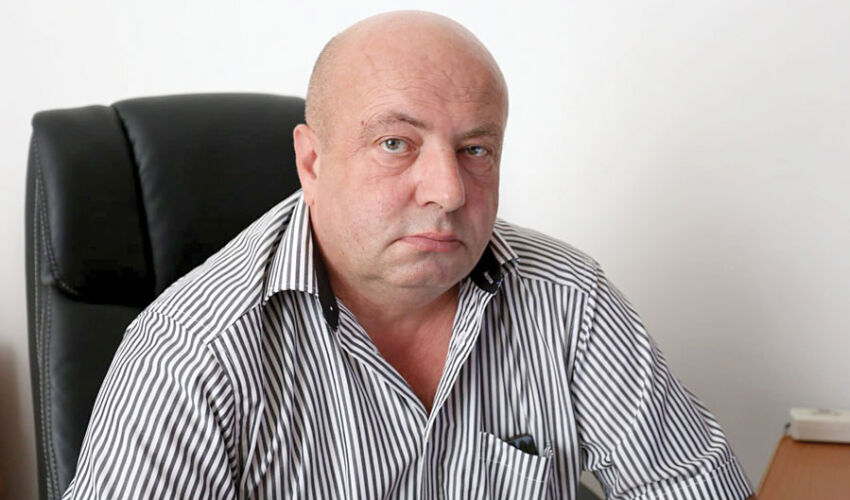
Viorel Chivriga
“There is a need for people who are able to interact effectively with people, animals, land and finances,” summarized succinctly the opinion of the expert community, Viorel Chivriga, a specialist in the field of agricultural management of several local and international organizations. – It can be stated that Moldovan agribusiness needs managers in all areas: in working with potential investors and donors, in marketing and organization of regional/foreign offices, in procurement of inputs and sales of agricultural products, in recruitment and interaction with personnel. The next category of in-demand specialists is finance-accountants and clerks. The realities of modern business are such that those who are able to adequately calculate the economic feasibility of this or that production, pay taxes correctly and request compensation-subsidies will have a clear advantage in it. Further, there has always been and will always be more or less wide demand for workers of such basic specialties as agronomists and veterinarians, as well as mechanizers. It is hardly possible to judge about the proportional ratio of demand for certain agricultural workers “offhand”, special studies are required for this purpose. But in general, the situation seems to be as follows.
Representatives of industry associations also agree that the bulk of official proposals for hiring employees come from large agricultural, processing and trading companies that have a more or less developed raw material base. That is, with a certain degree of generalization – from agricultural holdings.
Peasant (farmer) farms “staff hunger” is solved in a different way – through self-employment of owners and some form of outsourcing. Especially since the current legislation imposes certain restrictions on the hiring of labor force by peasant farms. By the way, leaders of agrarian NGOs note in this regard that in contact with the authorities they are working on a draft law that would change the essence and principles of farming as a form of organizing agricultural activity.
It is also worth mentioning that the most qualified representatives of technical professions, in particular agronomists, work mainly in companies supplying the Moldovan market with agricultural inputs – pesticides and fertilizers, seeds and planting materials, agricultural machinery and equipment. There are many reasons for this: comparatively higher salaries and better working conditions, prospects for professional development and career growth, general mobility (a plus for young and dynamic people). By the way, in trading and industrial companies, agronomists often combine the positions of consultant and sales manager for certain product categories.
In such a model of “universal assistant” for clients of trading companies there is a serious bonus – the opportunity to rely on the knowledge of a trading partner in science-intensive issues, such as soil science, land reclamation and herbology. And, accordingly, “outsource” to the trader the solution of a number of highly specialized tasks in the field of soil health, irrigation, nutrition and plant protection. But there is a disadvantage – trusting the trader-consultant, the farmer sees the “picture of the world of agrotechnology” through his eyes, loses the ability to critically assess the situation. As a result, he sacrifices a significant share of his profitability in favor of the supplier of “complex agro-technological solutions”.
Especially interesting is the situation with the supply of mechanizers to Moldovan agriculture. This is a very marketable specialty, stratified both by the level of competencies – from a “Soviet-type” tractor driver to an engineer operator – and by the level of salaries. Both in this and in the other sense, much depends on the fleet of equipment with which the agro-farm is equipped. In particular, modern, complex and expensive agricultural machinery requires appropriate management and maintenance, a high level of knowledge and skills, which implies a well-motivated staff. In terms of salaries, this category of specialists in Moldovan agricultural holdings is close to the European level. At the opposite pole are farms with worn-out machinery and “turnover of mechanics”. However, such agricultural producers do not seek workers through official employment structures.
Most likely, the army of seasonal, day laborers for manual operations – from pruning plants in orchards and vineyards to mulching berries and harvesting fruit crops – are not included in the pool of official vacancies for agriculture. Accounting for the hiring, taxation, and social security of day laborers is governed by a relatively recent and repeatedly amended special law. However, as employers note, it does not function well in practice. Therefore, other, more utilitarian models of hiring daily workers are being sought. In particular, a test project of “voucherization of day laborers” is being implemented with the help of donors.
A separate important problem of the seasonal workers’ market is the price/quality ratio. Many employers point to the fact that the average age of day laborers, particularly in fruit growing in RM, exceeds 55 years. The labor capacity and productivity of most of these people is low.
Meanwhile, the level of daily earnings of a seasonal worker in the fruit growing sector in recent years fluctuated between 200-500 lei. The catalysts of earnings growth were the sectors of nut growing, table grape growing, stone fruits and berries production. However, in the last few years, despite inflation, the process of increasing the wages of seasonal workers has slowed down. Even in the segment of table grape growing on high-tech plantations like Pergola, the rates for seasonal workers have not yet exceeded the range of 400-500 lei per day.
The berry sector has become the record-breaker in terms of wages of agricultural workers in seasonal operations in the last two-three years. For example, one of the largest currant farms in the north of RM paid 700-800 lei per day for harvesting. But this level of costs for manual operations prompted the plantation owners to switch to mechanized harvesting of part of the crop.
Difficulties with hiring seasonal workers prompted Moldovan producers to search for non-standard for Moldova methods of solving the “labor problem”. Thus, some growers have even changed their production policy – they have expanded the range of fruits grown, not least in order to employ stable teams of pickers for a longer period of time, the whole season. The “rotational method” of hiring established brigades is becoming increasingly popular. Moreover, more and more often these brigades are staffed by foreign workers.
Fruit-growers’ associations speak very well about the brigades of seasonal workers from Central Asian countries. They are disciplined and reserved at work, do not drink alcohol, and do not get into conflicts with the local population. The average level of earnings per person is about $500 per month plus housing (in half-empty villages of Moldova the issue of temporary accommodation of seasonal workers is not a problem).
In the livestock sector, an almost legendary example is the cattle farm of Moldova’s largest dairy factory. Seven Nepalese work there. They are paid twice as much as the locals, but work three times as hard. The farm manager believes that such approaches are the future of Moldovan agriculture.

